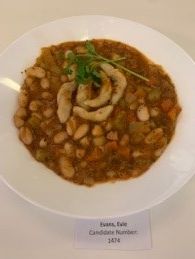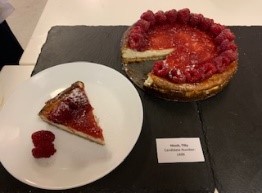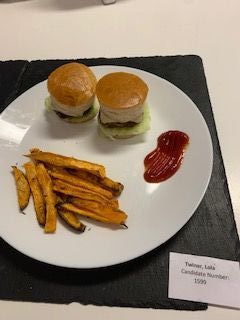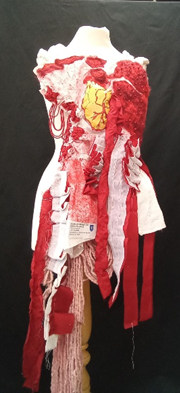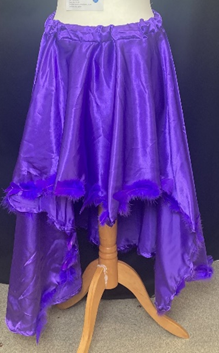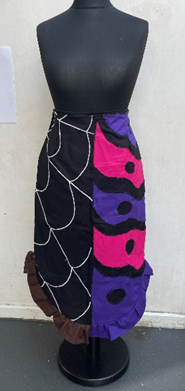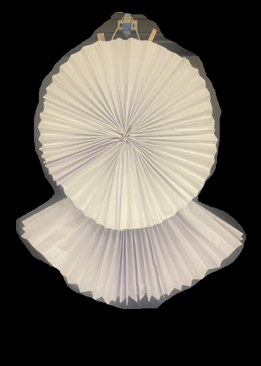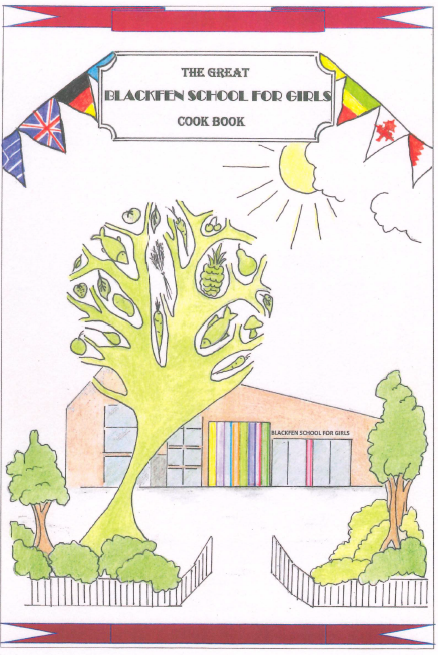Design & Technology
Welcome to Design and Technology
Design Technology equips students with an understanding of the increasingly expanding technological world in which we live and seeks to inspire them to use this technology to change and improve the lives of themselves and others. In other words, students learn, to change the world. Students particularly enjoy the freedom to express their creativity in Design Technology and the problem solving that they encounter. The growth mindset is actively encouraged throughout all our projects.
Subject Overview
At Key Stage 3 pupils study Design and Technology on a carousel system, spending 12 weeks in each subject area. Pupils will study Food Preparation and Nutrition, Textiles and Product Design each year and build on their learning as they progress through the school. There will be crossover of key skills in each subject area, allowing pupils to set targets and make progress as they transition into the next subject area.
At KS4, we aim to offer every student the opportunity to face the technical and creative challenges that are possible in Design Technology. As Design and Technology is a STEM subject, it is an excellent complimentary subject to Science and Math at GCSE. Food Preparation and Nutrition is also a good complimentary subject to those interested in a health and fitness career. We currently offer GCSE Food Preparation and Nutrition and Art and Design Textiles. In the future we are also hoping to offer Product Design GCSE.
Career Prospects
There are a wide range of career prospects for those considering a future in a design and technology or STEM related field. The following is a summary of those jobs but not an extensive list: Graphic or Product Designer, Fashion illustrator, Fashion Designer, Fashion Merchandiser, Haberdasher, Fashion Buyer, Engineer, Materials Engineer, Materials Technologist, Nutritionist, Fitness and Health instructor, Architect, Chef, Kitchen Manager.
KS3
Year 7
| Product Design |
|---|
| Students will take part in the Young Leaders Engineering Awards to answer the question “If you were an engineer what would you do? This is a national award and a graded competition that is hosted by Kingston University and winning work will be invited to the award ceremony and exhibition. Students will be introduced to STEM and the links between Science, Technology, Engineering and Maths. As a complimentary project, students will have the opportunity to manufacture a recycled HDPE clock, learning basic workshop skills. |
| Food Preparation and Nutrition |
|---|
| Pupils learn the principles of food hygiene and safety. They learn to use a range of preparation and cooking techniques, with different ingredients, such as knife skills, boiling, baking, mixing and grilling. |
| Textiles Technology |
|---|
| Students develop their knowledge and understanding of textiles when manufacturing a soft toy. They use a range of hand embroidery techniques, learn how to use the sewing machine and simple decorative techniques such as applique, as well as developing accurate measuring and cutting skills. |
Year 8
| Product Design |
|---|
| Students are introduced to sustainable design; they look at upcycling & environmental issues before designing & making timber junk bots. They build their knowledge of a range of hand tools & processes when working with wood, building upon the skills gained in year 7. They also develop drawing skills using techniques such as isometric. |
| Food Preparation and Nutrition |
|---|
| Students learn about healthy eating, and build on the skills they have developed in Year 7. Pupils will learn how to make pastry by studying the science of food. They will also learn a number of new skills including binding, frying and use of electrical equipment e.g. whisks. They will also look at factors affecting food choice such as vegan and vegetarian requirements. |
| Textiles Technology |
|---|
| Pupils develop their design skills, looking to other cultures for inspiration. They develop their understanding of colour and composition in the design & manufacture of pencil cases. Pupils will learn how to use different fabric dying techniques such as batik, develop their applique skills and learn a number of new and more complex embroidery stitches. |
Year 9
| Product Design |
|---|
| Food Preparation and Nutrition |
|---|
| Students will make a range of technical and complex recipes to challenge their knowledge and progress from year 8. This will include making dishes that involve pastry making, dough making, portion control and consistency in their skills. |
| Textiles Technology |
|---|
| Students design & make their first piece of clothing in the form of a small children’s dress. They are expected to display a range of techniques learnt from year 7 & 8 alongside the needs of a client. They will learn how to use a commercial pattern & read pattern markings. |
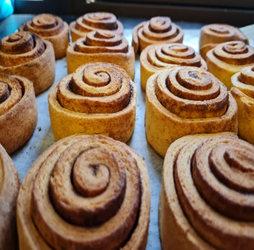
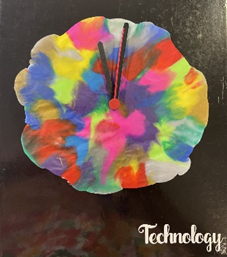
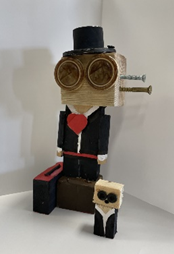
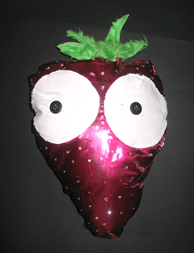
KS4
GCSE Food Preparation and Nutrition, AQA, Course code 8585
Year 10
| Term | |
|---|---|
| Autumn term |
Principles of Nutrition – looking at the nutritional content of foods, what those nutrients do in the body and how they are utilised in the body.
Introductory Practical skills – Developing and advancing knife skills to produce quality food products. Variety of sweet and savoury products made in order to apply these different skills like bread-making. |
| Spring term |
Food science & dietary analysis – the functional and chemical properties of ingredients and how they can be used in cooking. Students also learn to modify recipes and analyse diets for healthy life style changes.
Practical skills and experimentation – continued development of practical skills and applying theoretical knowledge of functions of ingredients to variety of experiments. Focus on Enzymic Browning, Gelatinisation, Aeration and Binding. |
| Summer term |
Food Provenance & Multicultural foods – looking at social and economic issues surrounding food origins, food miles etc. as well as comparisons of British and International cuisines.
Advanced Practical Skills & Presentation – Students learn pasta making and then apply all aspects from the year and apply/learn presentation skills in order to create dishes that are visually appealing. |
Year 11
Autumn term
Recapping theoretical knowledge and final practical skills in preparation for Non-Exam Assessment tasks, which are released in September (NEA1) and the start of November (NEA 2).
Task 1: Food investigation (30 marks) NEA 1
Students' understanding of the working characteristics, functional and chemical properties of ingredients. Practical investigations are a compulsory element of this NEA task.
Task 2: Food preparation assessment (70 marks) NEA 2
Students' knowledge, skills and understanding in relation to the planning, preparation, cooking, presentation of food and application of nutrition related to the chosen task.
Students will prepare, cook and present a final menu of three dishes within a single period of no more than 3 hours, planning in advance how this will be achieved.
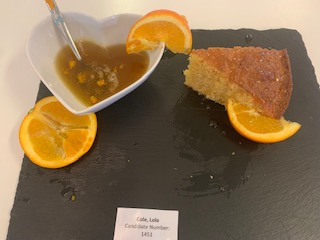
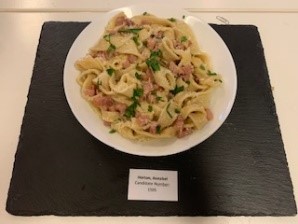
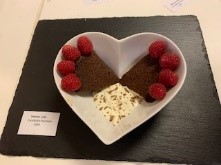
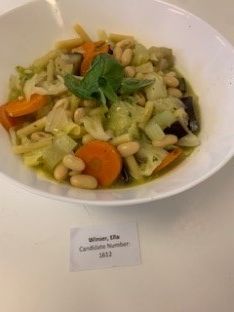
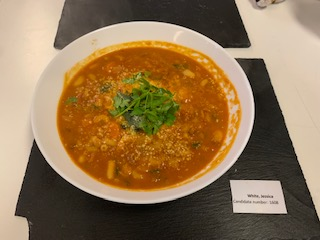
KS4
GCSE Art and Design Textiles, AQA, Course code 8202
Art and Design Textiles allows students to use a range of techniques and develop a number of different skills using mixed media.
Component 1: (year 10 and term 1 Year 11) This is 60% of the GCSE. Students will produce a portfolio that in total shows explicit coverage of four assessment objectives. This will be a sustained project developed in response to a subject, theme, task or brief evidencing the journey from initial engagement with an idea(s) to the realisation of intentions. This will give students the opportunity to demonstrate, through an extended creative response, their ability to draw together different areas of knowledge, skills and/or understanding from across a range of materials and decorative techniques. Students will carry out activities such as trials and experiments; skills-based workshops; mini and/or foundation projects; responses to gallery, museum or site visits; independent study and evidence of the student’s specific role in any group work undertaken.
Component 2: (Year 11 Term 2&3) This is 40% of the GCSE. AQA will provide a separate externally set assignment with seven different starting points. Students must select and respond to one starting point from their chosen title. They will complete a sustained project over 10-12 weeks, followed with a 10-hour controlled assessment. The externally set assignment provides students with the opportunity to demonstrate, through an extended creative response, their ability to draw together different areas of knowledge, skills and/or understanding in response to their selected starting point.
Throughout both components students will cover the formal elements; colour, line, form, tone, texture, shape, pattern, composition, decoration, repetition, scale, structure and surface. They will learn a range of skills which can include weaving, felting, stitching, applique, printing whilst using different materials such as yarns, fibres and fabrics.
Blackfen community cook book
For sale now via Wisepay in the Classroom Activities section


